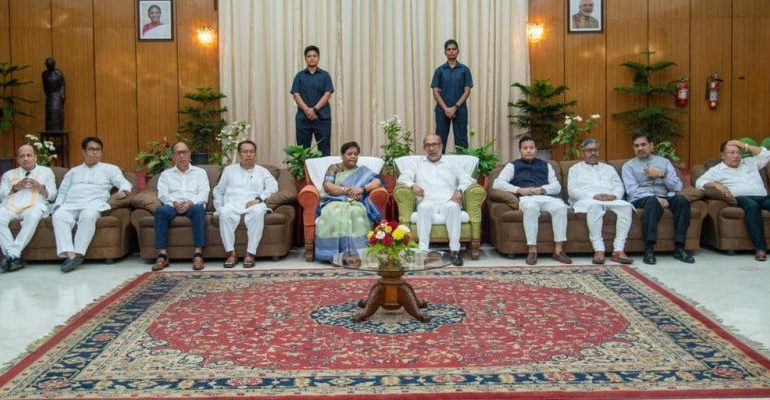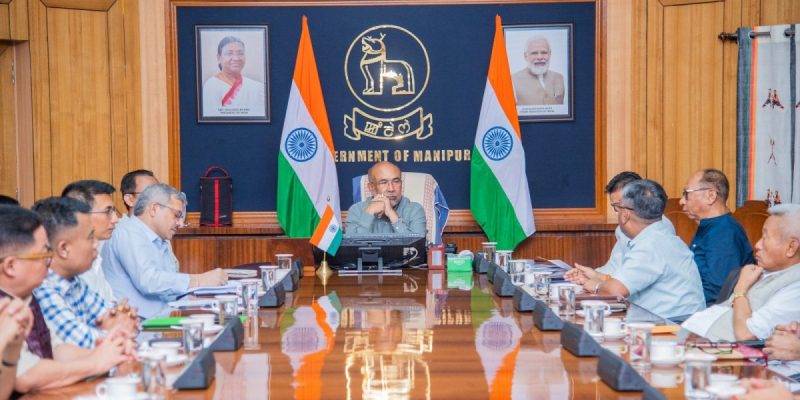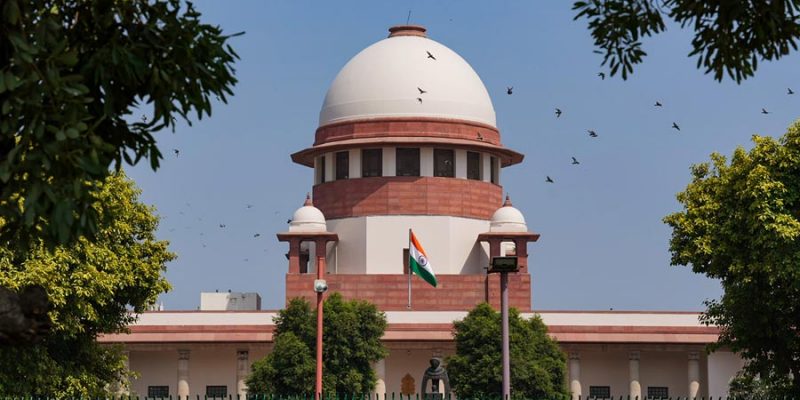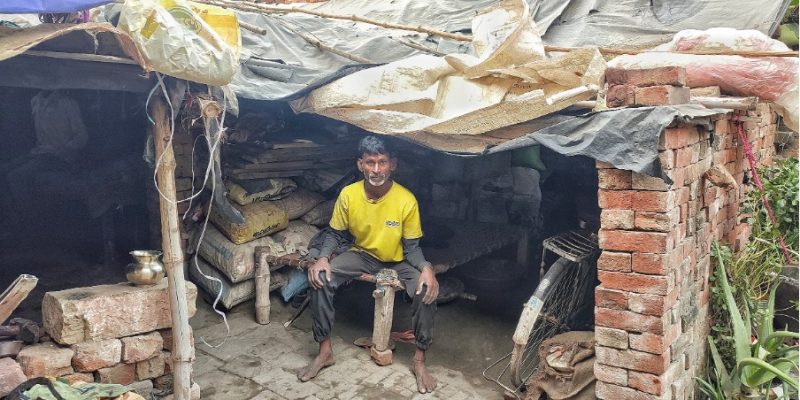What the Manipur Assembly’s ‘One-Day’ Session Tells Us About ‘Double-Engine’ Governments

New Delhi: Today, on August 29, the monsoon session of the Manipur assembly is finally set to take place.
The state’s 10 Kuki MLAs are boycotting the session and 10 Naga MLAs too are likely to stay away.
Significantly, the session will be also be wrapping up today itself – a rare phenomenon not just in the history of that north-eastern border state but also in India.
The decision of the Governor Anusuiya Uikey, and then of the Business Advisory Committee of the Manipur assembly, to call for a regular session of the assembly with just one sitting, however, has all the signs of a move made only to send out a message that the state is functional.
This is to ostensibly quell the demand from the opposition to clamp President’s Rule in a Bharatiya-Janata Party (BJP)-ruled ‘double-engine’ state.
As per constitutional requirement, there has to be an assembly session every six months, unless there is direct rule of the Union government in that particular state. The last session in Manipur was held in the first week of March, meaning that by the first week of September, the governor has to call the next session on the advice of the chief minister and his cabinet.
While governor Uikey did not heed chief minister N. Biren Singh’s formal request to hold the session initially, she eventually did, leaving one to only conclude that she must have done so at the advice of the Union to ensure that a BJP-ruled state is not seen hurtling towards President’s Rule.
This constitutional aberration of holding a single sitting of a regular assembly session in Manipur is, however, only a continuation of what governors appointed by the Narendra Modi government are increasingly seen to be doing in several states – going against the norm. The phenomenon is noticed both in BJP and opposition-ruled states. If we focus on the details, each instance comes across more as an act by a political appointee than intended to protect the constitution which the governors are expected to safeguard in each state.
Punjab assembly
Take the case of Punjab. Governor Banwarilal Purohit is taking on the chief minister of Punjab, an opposition-ruled state, based on his allegation that the Bhagwant Mann government is facilitating the drug menace in the state. The governor is threatening to recommend President’s Rule to the Union government over the the chief minister not responding on the matter.
What is interesting is this threat of the governor to recommend President’s Rule in Punjab comes at a time when the Union has doggedly refused to do the same in Manipur even after at least 150 people have lost lives in an ethnic conflict, leaving over 50,000 people in relief camps since May and voices from within both Kukis and Meiteis demanding the accountability of the BJP chief minister, with some even demanding his resignation for failing to maintain law and order. Importantly, thousands of arms were looted from police stations to kill innocent people. In Manipur, the chief minister is also the state home minister.
The Punjab governor’s threat particularly strikes as odd when you also take into cognisance that an affidavit was filed in the Manipur high court in 2020 by a state police officer handling the anti-drug drive stating that the BJP chief minister had categorically asked her to go slow in some drug-related cases. No action was seen taken on that front either by the then state governor nor by the Centre.
Tamil Nadu assembly
Look at Tamil Nadu. After a face-off with the NSCN (Isak-Muivah) leaders, and several minor skirmishes with the state government led by BJP-ally National Democratic People’s Party (NDPP), the Centre removed Nagaland governor R.N. Ravi from his position and also as its interlocutor for the Indo-Naga peace talks in 2021. It also transferred him to the Tamil Nadu Raj Bhavan from the Kohima Raj Bhavan.
Ravi, as the Tamil Nadu governor, has since been acting more like a political appointee than going by the constitutional rulebook. One such aberration was regularly blocking bills passed by the state assembly. Though he claimed in an interview to Times of India that no bills were pending before him unlike what was claimed by the chief minister M.K. Stalin, an RTI reply recently revealed as many as 13 bills have been pending before him.
This January, Ravi hit the headlines by becoming the first Tamil Nadu governor to refuse to read a portion of the text of his customary address to the assembly put together by the DMK government.
This was an aberration that took place also in the Kerala assembly in 2018, carried out by another Modi government appointed governor in the Left-ruled Kerala. In that southern state too, the current governor Arif Mohammad Khan has been following the same script of continuously taking on the opposition-ruled state government on some trivial matter or the other, thereby behaving more like a political appointee than a constitutional head of the state.
The Tamil Nadu governor seemed to have crossed the line even by the Ministry of Home Affairs’ estimates recently when he decided to dismiss a cabinet minister of the Stalin government. With the state government threatening to go to the court for violation of a constitutional norm, Ravi had to back off at the MHA’s intervention.
Rajasthan assembly
While in Manipur, the governor has called the assembly session without following the usual practice of granting at least a 15-day notice to the legislators before announcing commencement of a session, in Rajasthan, yet another Modi government-appointed governor, Kalraj Mishra, had refused to entertain a request from the Congress-run state government to hold a session because it didn’t give the MLAs a 21-day notice.
Interestingly, that session in 2020 was called by the Ashok Gehlot government at a time when the chief minister was facing a power tussle within his party, with the rebel faction comprising 19 MLAs having approached the governor to not hold the session. Three times, the state cabinet’s request to the Raj Bhavan to hold an assembly session to prove his majority on the floor of the house was rejected citing the pandemic, something political observers had then viewed as the governor acting to favour the Congress rebels.
Arunachal Pradesh assembly
But when it comes to holding assembly sessions, the mother of all constitutional aberrations had taken place in Arunachal Pradesh, in 2015.
With the approval of the then governor J.K. Rajkhowa, 33 Congress rebel legislators of the state assembly met at a community hall in Naharlagun to topple the Congress government, and ultimately clear the passage for the formation of a BJP government in that state.
Much later, the Supreme Court delivered a judgement in favour of the beleaguered Congress government but by then, the country had already registered a constitutional aberration that, on looking back now, seems to have ushered many more in the last eight years.







